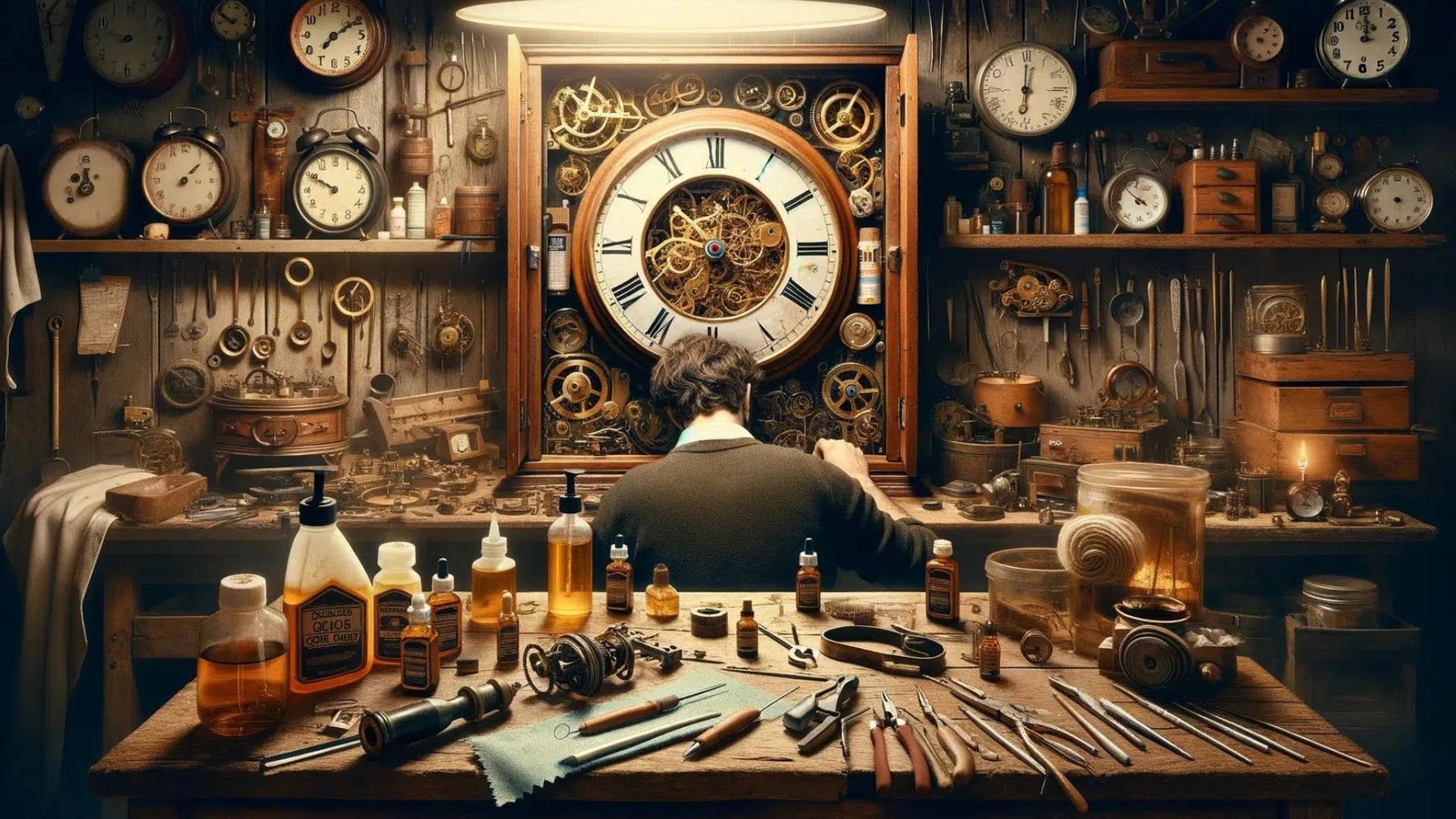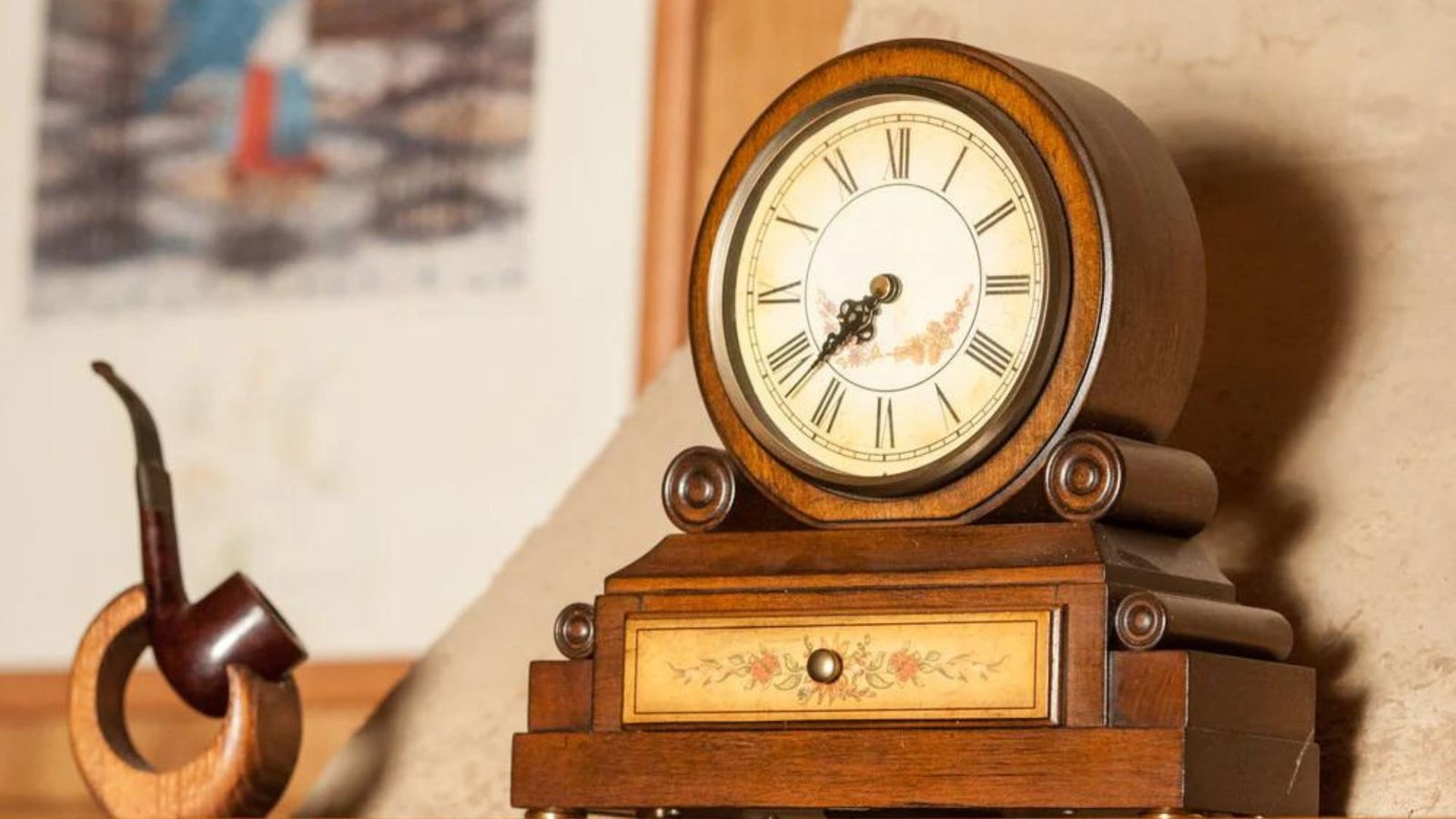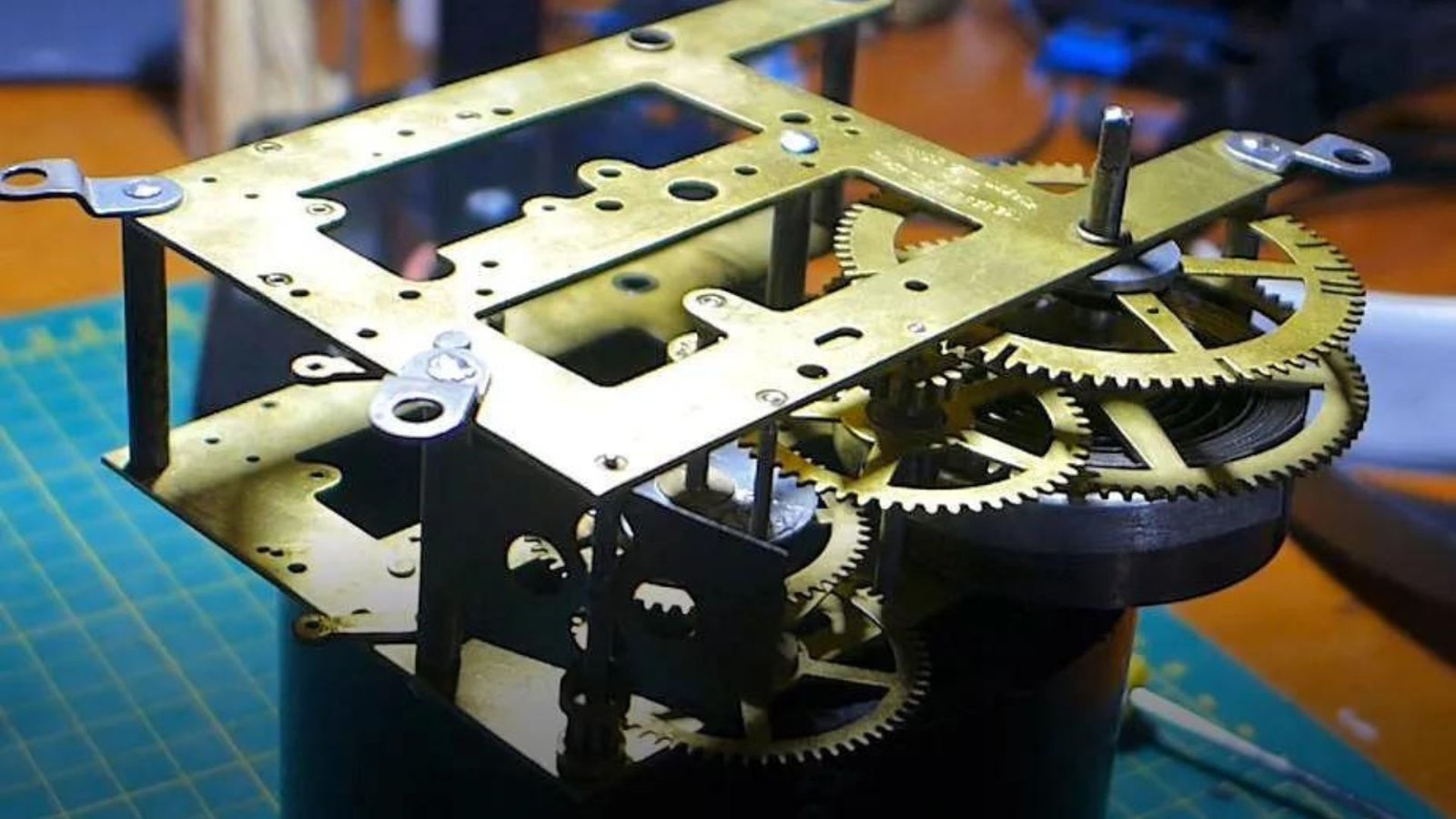Clocks are more than just tools for telling time; they can be treasured heirlooms, intricate pieces of craftsmanship, or beautiful additions to your home. To ensure that your clock functions properly and maintains its aesthetic appeal, regular maintenance is crucial. Proper care can extend the lifespan of your clock, keep it running smoothly, and even enhance its value over time.

Ensures Accurate Timekeeping
One of the primary reasons for maintaining your clock is to ensure it keeps accurate time. Over time, dust, dirt, and wear can affect the internal gears and mechanisms of both mechanical and quartz clocks.
- Mechanical Clocks: These clocks rely on intricate gear systems and springs. When these parts get dirty or worn, the clock may lose accuracy, running too fast or too slow. Regular cleaning and oiling help keep these parts functioning smoothly.
- Quartz Clocks: Although these clocks are electronic, dust or worn-out parts can affect the performance of the motor. Battery replacements and occasional inspections help maintain their accuracy.
Prevents Major Repairs
Neglecting clock maintenance can lead to serious damage that might require costly repairs. Routine checks help detect small issues before they become major problems.
- Early Detection: Regularly inspecting the clock can help identify problems such as loose hands, broken gears, or failing springs before they cause the clock to stop functioning.
- Avoid Costly Repairs: Fixing minor issues early on can prevent the need for expensive repairs or even total replacement. Preventative maintenance, like cleaning and lubrication, protects the clock’s internal parts from wear and tear.
Prolongs Clock Lifespan
Clocks, especially mechanical ones, can last for generations when properly maintained. Regular upkeep ensures that each component works as it should, increasing the clock’s longevity.
- Mechanical Clocks: Components like gears, pendulums, and springs can deteriorate over time if not cared for. Cleaning and oiling these parts regularly will reduce friction and wear, prolonging the clock’s life.
- Quartz Clocks: While quartz clocks are more modern, their motors and batteries need maintenance. Replacing batteries on time and cleaning the case can help ensure the clock remains functional for years.
Preserves Aesthetic Appeal
Clocks are often displayed prominently in homes or offices, and maintaining their appearance is just as important as keeping them running. Dust and dirt can accumulate on the exterior, diminishing the clock’s aesthetic appeal.
- Cleaning: Regularly wiping down the clock’s exterior, including the face, hands, and case, prevents dirt buildup. For antique clocks, using appropriate cleaning materials will prevent damage to delicate finishes.
- Polishing: Metal and wooden cases can tarnish or lose their shine over time. Periodically polishing these materials will help preserve their appearance.
Protects Valuable Heirlooms
Many clocks hold sentimental value and are passed down through generations. Regular maintenance helps protect these heirlooms, preserving them for future generations.
- Preserving Family History: Clocks that have been passed down through the family often hold significant emotional and historical value. Proper care ensures these pieces can be enjoyed by future generations.
- Maintaining Value: Well-maintained antique clocks can also retain or increase their monetary value over time. A clock that has been regularly serviced will be more valuable than one that has been neglected.
Keeps Clocks Safe from Environmental Damage
Clocks, like other precision instruments, can be sensitive to environmental factors like humidity, temperature changes, and exposure to sunlight.
- Humidity and Temperature: Excessive humidity can cause rust on metal parts and swelling in wooden cases, while temperature fluctuations can affect the clock’s mechanisms. Regular maintenance and proper placement in a stable environment can help prevent damage.
- Sunlight Exposure: Constant exposure to direct sunlight can fade a clock’s finish and affect its internal components. Placing the clock in a shaded area and checking for sun damage regularly will help protect it.
Supports Smooth Functionality
Mechanical clocks have many moving parts, and regular maintenance helps ensure they continue to run smoothly without unnecessary friction or wear.
- Oiling the Gears: Oiling is essential for mechanical clocks to reduce friction and keep the gears turning smoothly. Without lubrication, parts can wear out faster, leading to breakdowns.
- Tightening Loose Parts: Over time, parts like the clock hands or screws can become loose. Regular checks allow you to tighten or adjust these parts to keep everything functioning as it should.
Conclusion
Regular clock maintenance is essential for ensuring accurate timekeeping, preventing costly repairs, and extending the clock’s life. Whether it’s an antique family heirloom or a modern quartz clock, proper care helps preserve both its functionality and beauty. By taking the time to regularly clean, oil, and inspect your clock, you’ll ensure that it continues to serve you well for years to come.





Aber sei damals haben die unterschiedlichsten Spieleentwickler viele kreative Themen, Funktionen, Spielelemente und
andere Eigenschaften ausgedacht, die die Slots heute zu den beliebtesten Casinospielen im Internet machen. So können Sie auch unterwegs über Handy und Tablet an fast allen Casino Slots
spielen. Ja, bei vielen Anbietern können Sie Online Slots kostenlos spielen.
Den Titel muss man auch technisch in die
beste Automatenspiele Riege einreihen. Dieses Spiel kann in einem Automatenspiele Casino mit NetEnt Titeln gefunden werden. In der folgenden Übersicht habe
ich Automatenspiele aufgeführt, die in meinem Test besonders hohe Auszahlungsquoten boten.
Wie viele Freispiele es werden, hängt natürlich von dem Slot, aber manchmal auch von der Anzahl
der aufgedeckten Scatter ab. Inklusive bekannter Features wie
Freispiele mit expandierenden Symbolen oder dem typischen „Book“-Mechanismus.
Merkur Slots zeichnen sich durch einfache Regeln, Bonusfunktionen wie Risikoleiter oder Freispiele und eine hohe
Wiedererkennung aus. Einzelne Titel wie Book of Ra oder Eye of Horus sind nicht nur online, sondern auch aus Spielotheken bekannt und genießen Kultstatus.
Besonders gefragt sind Features wie Freispiele, expandierende Wilds oder Bonusrunden, die für zusätzliche Gewinnchancen sorgen. NetEnt, Microgaming
und Playtech stehen hinter einigen der meistgespielten Slots in Deutschland, darunter Starburst, Immortal Romance und Age
of the Gods.
References:
https://online-spielhallen.de/nomini-casino-aktionscode-dein-schlussel-zu-besseren-pramien/
Players can enjoy SkyCrown Casino on mobile without downloading any additional software.
This ensures that all operations comply with strict international
gaming standards. SkyCrown boasts a rich library of more than 6,
000 titles from world-class providers such as Pragmatic Play, Microgaming, Evolution Gaming, NetEnt, and Play’n GO.
From the first glance, SkyCrown Casino’s design stands out for its smooth layout and stylish dark theme
accented by gold tones, giving the platform a premium, royal feel.
The official SkyCrown Casino website delivers
a modern, intuitive interface that combines
elegant visuals with simple navigation.
Sky Crown Casino was launched in 2021 by Hollycorn N.V., quickly gaining traction among
gaming enthusiasts. Once the game is fixed, you will be
notified. To be notified when your game is ready, please leave your email below.
Encourage responsible gambling practices and provide resources
to assist users. Do not promote unlicensed or illegal gambling
operators.
The skycrown app gives you full access to the entire game library, including new
releases and popular hits from top providers. It’s legal for Aussies to play here, since local
laws target operators, not players. Sky Crown Casino online operates under a licence from
the Government of Curacao — not Australian, but
common for international casinos.
References:
https://blackcoin.co/steps-casinos-should-take-to-improve-their-cyberspace-security/
The value of this deposit bonus offered by RocketPlay Casino
is 100% of your deposit, up to €200. If you wish to learn more, go to our article about wagering
requirements of casino bonuses. Such exclusive bonuses tend to be in some way better than regular offers available to everyone.
Exclusive bonus offers are often better than usual bonuses available to everyone.
Cryptorino’s gaming library is diverse, with slots offering up to
30 weekly free spins. The casino also features a sportsbook covering a wide range of sports and esports, from soccer and basketball
to Dota 2 and League of Legends. Casinopunkz rewards slot play with
Free Spin Sundays that scale by tier, turning weekly activity into regular spin drops.
With its combination of ongoing challenges, rolling XP system,
and exclusive VIP perks, Casinopunkz caters to crypto casino fans looking for both
fun and long-term rewards.
Although if your query cannot wait, you might want to opt for live support.
You can contact the support department via live chat and email.
The good selection of booming games is powered by both well-known giant
companies and less popular or smaller corporations.
Overall, there are no fewer than 2000 games available at Rocket Casino.
References:
https://blackcoin.co/vegas-now-your-next-favourite-online-casino-in-australia/
online real casino paypal
References:
http://49.50.172.162/bbs/board.php?bo_table=free&wr_id=1058741
online casino paypal
References:
https://dfc1318.kr/bbs/bbs/board.php?bo_table=free&wr_id=30722